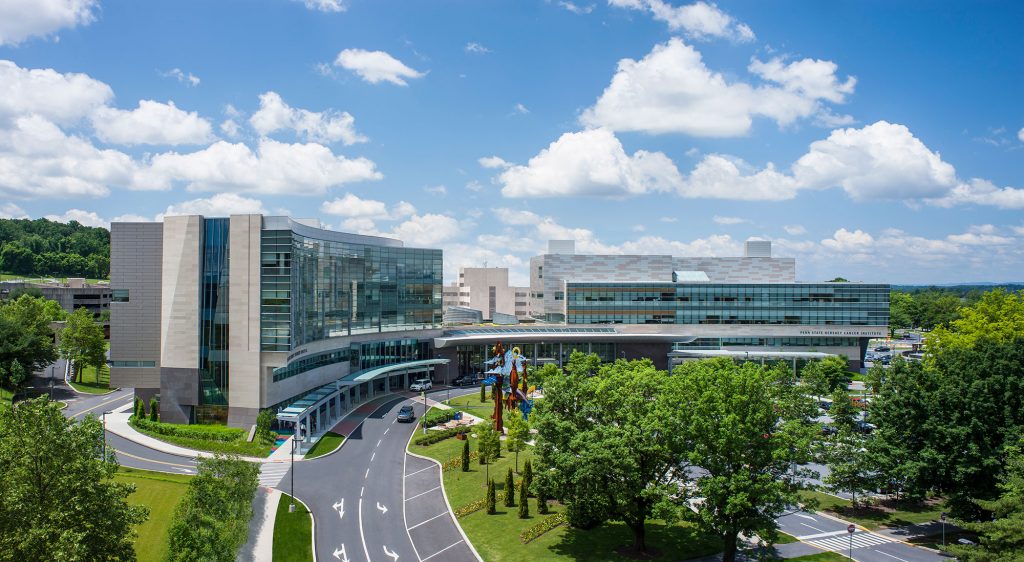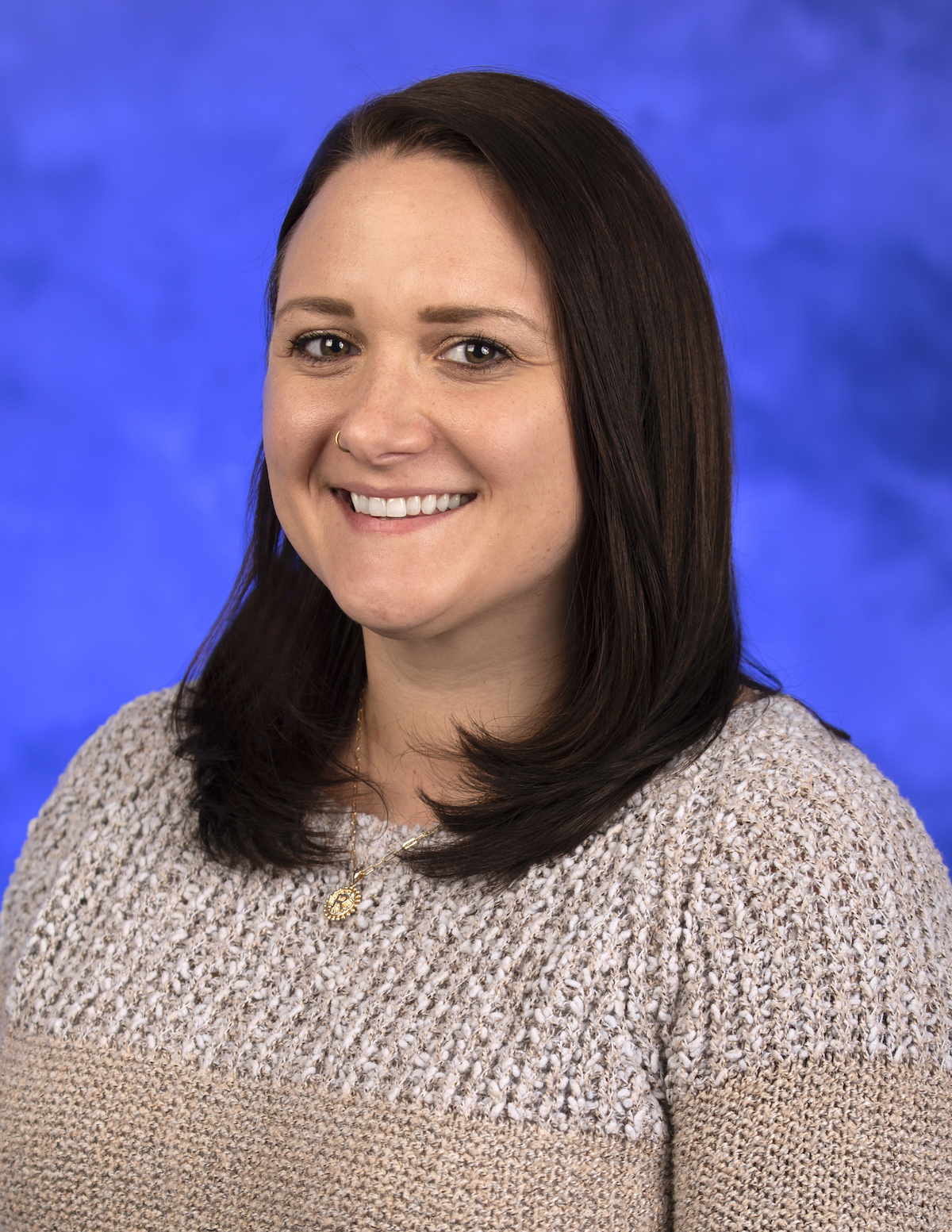Jump to topic
Search
Program Goals and Aims
The Pediatric Anesthesiology Fellowship strives to:
- Be pediatric patient and trainee advocates, helping to achieve excellence in education, patient safety and patient care
- Inspire excellence, innovation and dedication in the field of pediatric anesthesiology
- Become a model pediatric anesthesiology fellowship program, training fellows who are capable of independent subspecialty consultant-level care, and who are able to become leaders in academic and private pediatric anesthesiology
- Maintain outstanding levels of collegiality, professionalism and teamwork
- Teach skills, knowledge and practices that foster excellent performance in the clinical and academic arenas
- Emphasize the institution’s core values of respect, integrity, teamwork and excellence
Learn More about the Fellowship
General Application Information
All applicants must apply through the SF Match.
Applications are considered without regard to race, religion, gender, orientation or national origin.
Application requirements
All applicants must:
- Successfully complete an ACGME-accredited anesthesiology residency
- Successfully pass the American Board of Anesthesiology basic exam during residency training
- Be qualified to register for the American Board of Anesthesiology advanced and applied certification process
- Successfully complete USMLE Steps 1, 2 and 3
- Have current certification in ACLS (it is strongly encouraged for applicants to have current certification in PALS)
Required Supporting Documents
In addition to the SF Match application, the following documents should be submitted via email to rsant@pennstatehealth.psu.edu:
- Current curriculum vitae
- Current ISTE scores
- ABA basic exam results
Eligibility
Qualified candidates must be:
- U.S. citizens, permanent residents or J-1 visa holders (no additional visa types are sponsored)
- Board-eligible or board-certified in anesthesiology
- Eligible for a Pennsylvania medical training license
Interview Process
Interviews will be conducted remotely. All fellowship applications must still be submitted through SF Match and applicants will receive further communication via the SF Match system.
Interviews will begin in late March 2024.
Virtual Tour
Penn State Health
Penn State Health is a multi-hospital health system serving patients and communities across 29 counties of Pennsylvania. Its mission is to improve health through patient care, research, education and community outreach.
In December 2017, the system partnered with Highmark Health to facilitate creation of a value-based, community care network in the region. The shared goal of Highmark and Penn State Health is to ensure patients in the community are within:
- 10 minutes of a Penn State Health primary care provider
- 20 minutes of Penn State Health specialty care
- 30 minutes of a Penn State Health acute care facility
Learn more about Penn State Health

Penn State Health Children’s Hospital (left), Penn State Health Milton S. Hershey Medical Center (center) and Penn State Cancer Institute (right)
Penn State Health Milton S. Hershey Medical Center
500 University Dr., Hershey, Pa., 17033 (Derry Township, Dauphin County)
- The health system’s 647-bed flagship teaching and research hospital
- The only medical facility in Pennsylvania accredited as both an adult and a pediatric Level I (highest-level) trauma center
- Dedicated surgical, neuroscience, cardiovascular, trauma and medical intensive care units
- Accredited Life Lion critical-care transport providing more than 1,100 helicopter and approximately 750 ground ambulance transports per year
- More than 1,300 faculty members and more than 650 residents and fellows
- Approximately 29,000 admissions, 73,000 emergency department visits, 1.1 million outpatient visits and 33,000 surgical procedures annually
- Designated as a Magnet hospital since 2007
Learn more about Milton S. Hershey Medical Center
Penn State Health Children’s Hospital
600 University Dr., Hershey, Pa. 17033 (Derry Township, Dauphin County)
- An eight-story, 263,000-square-foot-facility built in 2013 and expanded in 2020
- 146 licensed pediatric beds, 18 acute care beds and a 56-bed neonatal intensive care unit
- Level IV (highest-level) neonatal intensive care unit
- Level I quaternary (highest-level) pediatric intensive care unit
- Level I (highest-level) pediatric trauma center designation
- Intermediate care unit
- Dedicated pediatric operating rooms
- More than 150,000 pediatric outpatient visits and approximately 5,000 pediatric patient discharges annually
Welcome to Hershey
More About Hershey
Interested in learning more about living and working in Hershey, Pa.? See details here:
Wellness, including emotional, spiritual, social and physical health, is a crucial component to training and to becoming a professional, compassionate and resilient physician. Self-care is a skill which must be continually practiced and reinforced. Penn State College of Medicine and Penn State Health are committed to addressing wellness among residents and fellows, with multiple resources readily available.
Institutional resources
- Visit BeWell – a health program designed to support Penn State Health employees
- See Penn State College of Medicine wellness resources here
- Employee Health Care Concierge and Case Management Service
- Partners in Medicine
Moving to a new city with your family does not have to be stressful. Residency programs have assisted many significant others with finding employment. There is also a GME-Wide Partners in Medicine (PIM) group that offers networking opportunities as well as various social and community oriented activities. - The Doctors Kienle Center for Humanistic Medicine
- Active and easily accessed Office of Professional Mental Health
Graduate medical education resources
Institutional Resources
Penn State Health and Penn State College of Medicine celebrate, embrace and support the diversity of all patients, faculty, staff, students and trainees.
Office for Diversity, Equity and Inclusion
In keeping with this, Penn State Health has an active Office for Diversity, Equity and Inclusion with various programs, networks and resource groups, including:
- Talks and lectures on diversity, equity and inclusion through the Inclusion Academy
- Regular events on topics such as eradicating racism and creating a culture of inclusiveness
- Many Business Employee Resource Groups (BERGs), including:
- Disability Business Employee Resource Group
- Interfaith Business Employee Resource Group
- LGBTQ+ Business Employee Resource Group
- Military and Veterans Business Employee Resource Group
- Multicultural Business Employee Resource Group
- NextGen Business Employee Resource Group
Learn more about the Penn State Health Office for Diversity, Equity and Inclusion
Learn more about the College of Medicine’s Office for Diversity, Equity and Belonging
Office for Culturally Responsive Health Care Education
The vision at Penn State College of Medicine and Penn State Health is to equip learners with the knowledge, skills and attitudes they will need to provide culturally excellent health care and research for an increasingly diverse U.S. population. The Office for Culturally Responsive Health Care Education was formed to help meet that goal.
Learn more about the Office for Culturally Responsive Health Care Education
Office for a Respectful Learning Environment
In addition, the institution does not tolerate discrimination, biases, microaggression, harassment or learner mistreatment of any kind, and any concerns are immediately addressed by the Office for a Respectful Learning Environment.
Learn more about the Office for a Respectful Learning Environment
Network of Under-represented Residents and Fellows
The Network of Under-represented Residents and Fellows (NURF) is a group of diverse residents and fellows representing all specialties. NURF’s goal is to promote cultural diversity in the residency programs through community involvement, mentorship with diverse faculty, professional networking and support for the recruitment of diverse medical students into the residency programs.
NURF is sponsored by the Penn State College of Medicine Graduate Medical Education Office and the Penn State Health Office for Diversity, Equity and Inclusion.
Mailing Address
Gregory Weller, MD, PhD
Pediatric Anesthesiology Fellowship Director
c/o Rachel Sant, Fellowship Coordinator
Penn State Health Milton S. Hershey Medical Center
Department of Anesthesiology and Perioperative Medicine
500 University Dr., H187
Hershey, PA 17033
General Contact Information
Phone: 717-531-6489
Fax: 717-531-0826
Curriculum Details
Fellows’ clinical experiences are based on monthly rotations in these departments:
- Operating rooms
- Pediatric ICU
- Neonatal ICU
- Pain
- Pulmonary
Formal didactic curriculum includes:
- Weekly fellow-level lectures
- Departmental functions that include Grand Rounds and case conferences
All fellows will also:
- Engage in a scholarly project, for which they are allowed a large amount of non-clinical time
- Take part as a teacher as well as a learner by developing and giving lectures to residents, and often by functioning as junior attendings and overseeing residents in the ORs
The Pediatric Anesthesiology Fellowship curriculum and objectives are designed to provide a broad exposure to the perioperative management of all elements of anesthesiology relating to the care of neonatal and pediatric patients. This includes, but is not limited to, preoperative evaluation and assessment, intra-operative management of simple and complex patients and cases, postoperative management, pain management and neonatal and pediatric critical care.
Structured didactic lectures, self-directed learning, Grand Rounds conference, teaching opportunities and an academic project will supplement the clinical experience. Intraoperative teaching in the operating room is the mainstay of all didactics and performance assessment of the fellowship.
The clinical rotation for fellows includes seven pediatric perioperative anesthesia months, including cases in:
- ENT
- General
- Neonatal
- Neurosurgery
- Off-site anesthesia (MRI, CT, nuclear medicine, interventional radiology)
- Ophthalmology
- Orthopaedics
- Plastics
- Transplant
- Trauma
- Urology
The program also includes:
- One and a half to two and a half months of pediatric cardiac anesthesia
- One month of pediatric ICU
- One month of neonatal ICU
- One month of pediatric pain and regional anesthesia
- Half a month of pediatric pulmonary medicine
Trainees in the Pediatric Anesthesiology Fellowship review the OR schedules one to two days in advance.
Fellows are encouraged to ask for specific ORs/cases that offer the best educational value for them. This way, fellows can advance their own clinical growth. Guided by the program director, they can also make sure they work with a broad range of complex pediatric cases.
Recent fellows have achieved case numbers that are much higher than the national fellow averages (index cases) for most types of cases.
Didactics in the Pediatric Anesthesiology Fellowship include:
- Pediatric fellows’ lecture series (weekly, fellow-level, covers entire ACGME curriculum)
- Grand Rounds (weekly)
- Anesthesiology fellows’ lecture series (six to eight lectures on practical topics, designed to prepare fellows for the ABA pediatric sub-specialty board exam)
- Pediatric anesthesiology fellow simulation sessions
Each fellow will have the chance to join in an overseas mission trip. The purpose of the trip is to offer pediatric anesthesiology services to areas of the world that do not get the health care they need.
The trip:
- Is joined by a member of Penn State Health Milton S. Hershey Medical Center’s pediatric anesthesiology faculty
- Usually lasts 10 to 14 days
- Includes non-clinical time and trip funds provided by the department
Fellows have access to the following resources:
- Fellows’ office space
- Electronic medical record system, which includes anesthesia records
- Dedicated ultrasound machine for pediatric regional anesthesia
- Comprehensive airway equipment:
- A number of videolaryngoscopes
- Fiberoptic laryngoscopes that include pediatric and neonatal blades
- Harrell Health Sciences Library, including online resources, journals and texts
- Physical university anesthesia library with a complete pediatric text collection
- Penn State College of Medicine Clinical Simulation Center
All trainees in the Pediatric Anesthesiology Fellowship must complete a scholarly project. Topics can include bench research, clinical research or quality improvement/quality assurance.
Projects are mentored by Penn State Health Milton S. Hershey Medical Center faculty. A deliverable is required (abstract, poster, manuscript, etc.)
Non-clinical time is offered (about one academic day per week) for completion of this project.
Each fellow must develop and give one one-hour lecture to anesthesiology residents.
In addition, fellows are given more responsibility in the operating rooms over time. This is decided by formal and informal assessments. Toward the end of the fellowship, most fellows will have the chance to supervise residents in the ORs. This presents chances to:
- Build management and teaching skills
- Help the fellow move from trainee to consultant attending
Each fellow will receive:
- Three weeks’ vacation
- One week of CME time (meetings, etc.)
- Added time for presenting posters or talks (allowed on a case-by-case basis)
Fellow Honors and Recognitions
Penn State College of Medicine and Penn State Health Milton S. Hershey Medical Center accept ongoing nominations for the Exceptional Moments in Teaching award.
The award, given monthly by the Office for a Respectful Learning Environment, accepts nominations from College of Medicine students who are invited to submit narratives about faculty members, residents, fellows, nurses or any other educators who challenge them and provide an exceptional learning experience. See more about the award here.
Previous nominees from the Pediatric Anesthesiology Fellowship are listed here. Click the + next to a nominee name to read their nominator’s comments.
The annual Resident/Fellow Research Day is held each year (with exception of during the COVID-19 pandemic) on and around the Penn State Health Milton S. Hershey Medical Center campus.
The intent of the event is to provide an opportunity for residents and fellows to showcase their research accomplishments to their peers in other clinical departments, as well as their colleagues in the basic sciences.
Learn more about Resident/Fellow Research Day here.
Previous presentations from the Pediatric Anesthesiology Fellowship are listed here.
Latest News from Anesthesiology

Latest News from Penn State Health Children's Hospital






